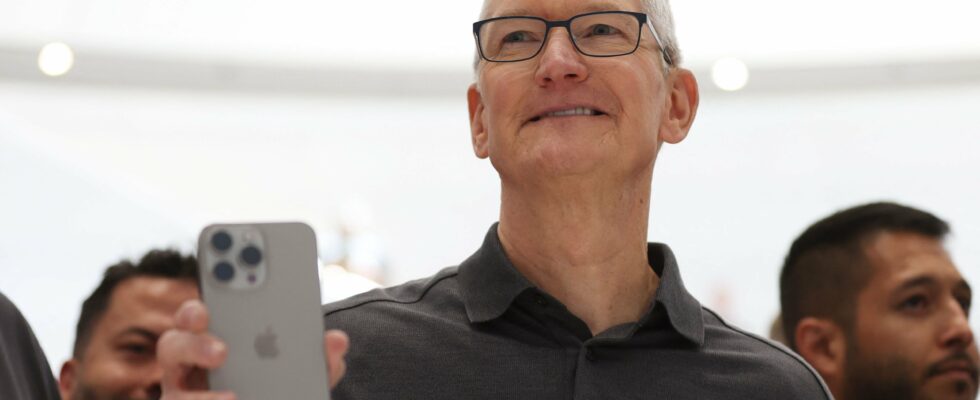The height of chic in artificial intelligence? Soon it will no longer be about having the most powerful or fastest AI, but the one that understands you best. A personal AI, which follows what the user does on a daily basis in order to offer them the right service, at the right time. For Elon Musk, it’s a nightmare which seems straight out of the dystopian series Black Mirror. But more and more companies are taking a more intimate approach to AI. Microsoft has thus announced the arrival on its PCs of Recall, a function powered by AI, allowing users to easily find what they have done in previous weeks, the function taking regular screenshots of their actions and digital gestures. “Would you dream of having a photographic memory? The closest equivalent is Recall”, summed up enthusiastically onYusuf Mehdi, executive vice president at Microsoft.
Apple is also taking the path of personal AI with its latest creation: Apple Intelligence. This “Swiss army knife” AI is aware of what is happening on the phone, which allows it to offer more relevant help. A user will be able to ask Apple’s assistant Siri to “Start playing the podcast that Luis recommended to me” or ask him what time his mother’s plane lands. Siri will spot the episode itself, or will find the flight information and “cross-reference it with real-time tracking to provide an arrival time,” explains the Cupertino company.
Google is not left out. At a time when our connected objects track a lot of our physiological data – heart rate, sleep, etc. -, the group has clearly identified its potential. Its “research” branch unveiled promising work on June 11 on a language model providing personalized health advice.
The team takes the example of a request that many Internet users make: How can I sleep better? “Although a seemingly simple question, arriving at an answer tailored to the individual involves a series of complex analytical steps, such as: checking data availability, calculating average sleep duration, identifying abnormalities in sleep patterns over a period of time, contextualize these findings within the context of the individual’s general health, integrate knowledge of population sleep norms, and provide personalized recommendations to improve sleep. underlines the post from Google Research detailing its progress in this area.
AI “chief of staff of your life”
In the long term, confides Mustafa Suleyman, co-founder of DeepdMind, to Business Insider, “everyone will have their own personal AI. It will remember everything you tell it, and will become a sort of “chief of staff” of your life: planner, organizer, lawyer, buyer… It will take charge for you and on your behalf with all these actions and will make your life much, much easier.” These intimate AIs are so popular due to several recent advances. First that of “agentic AI” which aims to give AI the ability to act on its digital environment, for example by making and organizing our appointments in an optimal manner, without the need for to supervise it.
Progress in mini-AI is also decisive. Unlike large language models (LLM) which focus on power, small models (SLM) focus on efficiency and attempt – successfully – to maintain their performance by reducing their size. A valuable field of research: it is thanks to this that models can now run on laptops or smartphones. Counterpoint Research even estimates that GenAI smartphones will represent 11% of phones sold this year and 43% in 2027. “Three out of four laptops sold in 2027 will be computers with advanced generative AI capabilities,” specifies the study firm.
For AIs that touch the intimate sphere to this extent to conquer the public, however, they will need to be impeccably secure. The operation of Apple Intelligence is thus closely supervised, reveals Numerama. On the iPhone, a database is created containing details of the user’s messages, photos, emails and various personal data. This sensitive list is fully encrypted and only saved on the device – it is not backed up to the cloud.
The iPhone language model then handles requests locally as much as possible. Only when the task at hand requires higher power does it call on remote servers. In this scenario, it only transmits a handful of user data for the task to be completed. The server resets afterwards and the exchange is “forgotten”. Microsoft, on the other hand, needed additional time to build an adequate shield. The group announced on June 13 that the Recall function would ultimately not be offered next week because it must be further tested. Given the explosive nature of the subject, it is better to proceed cautiously.
.
